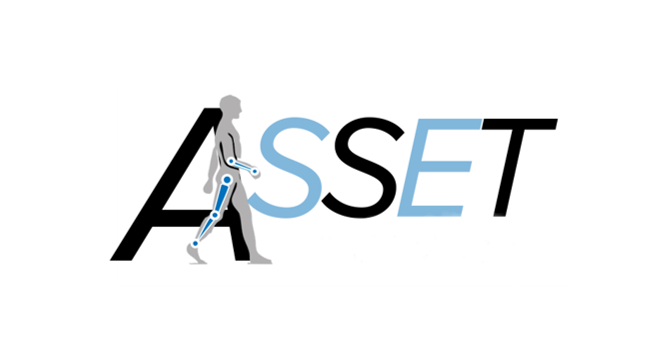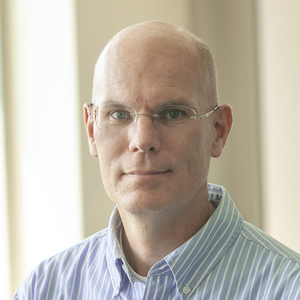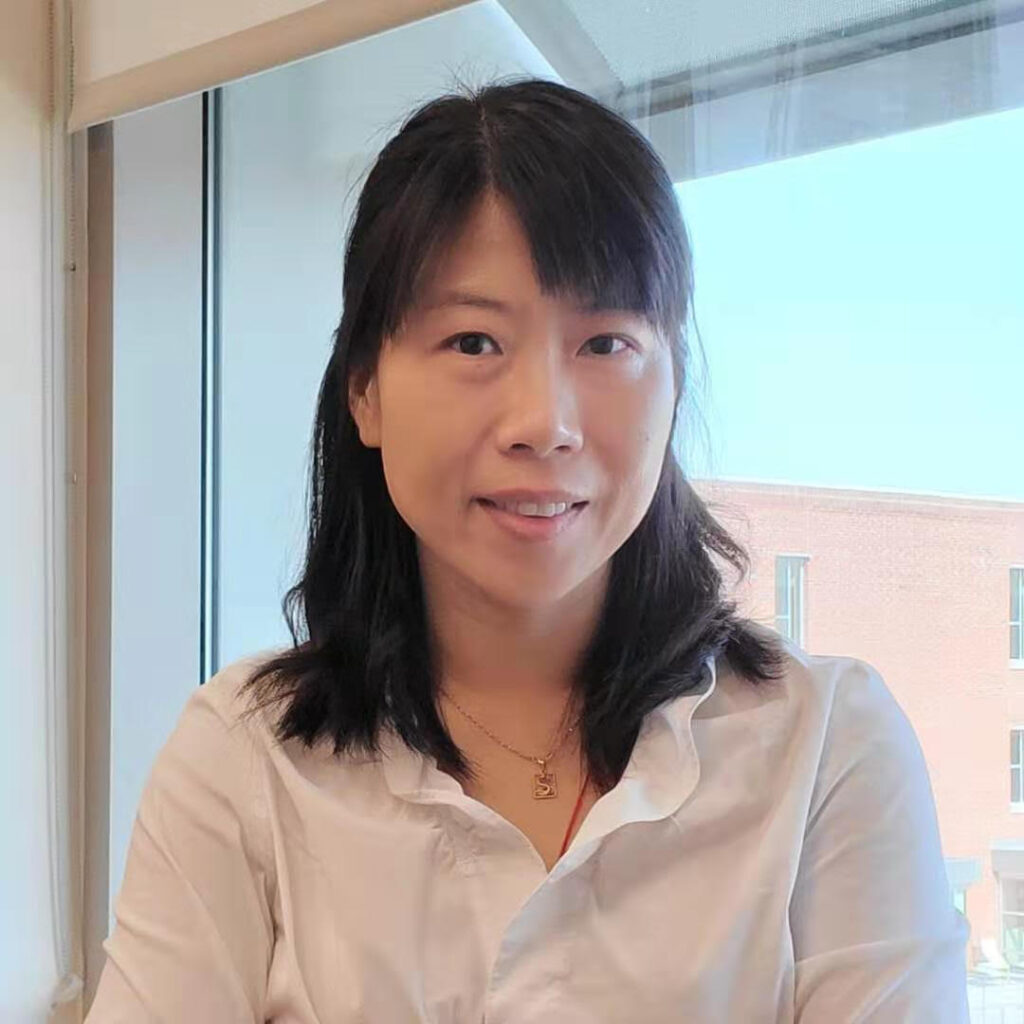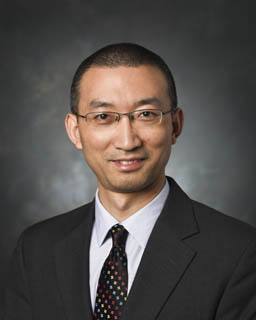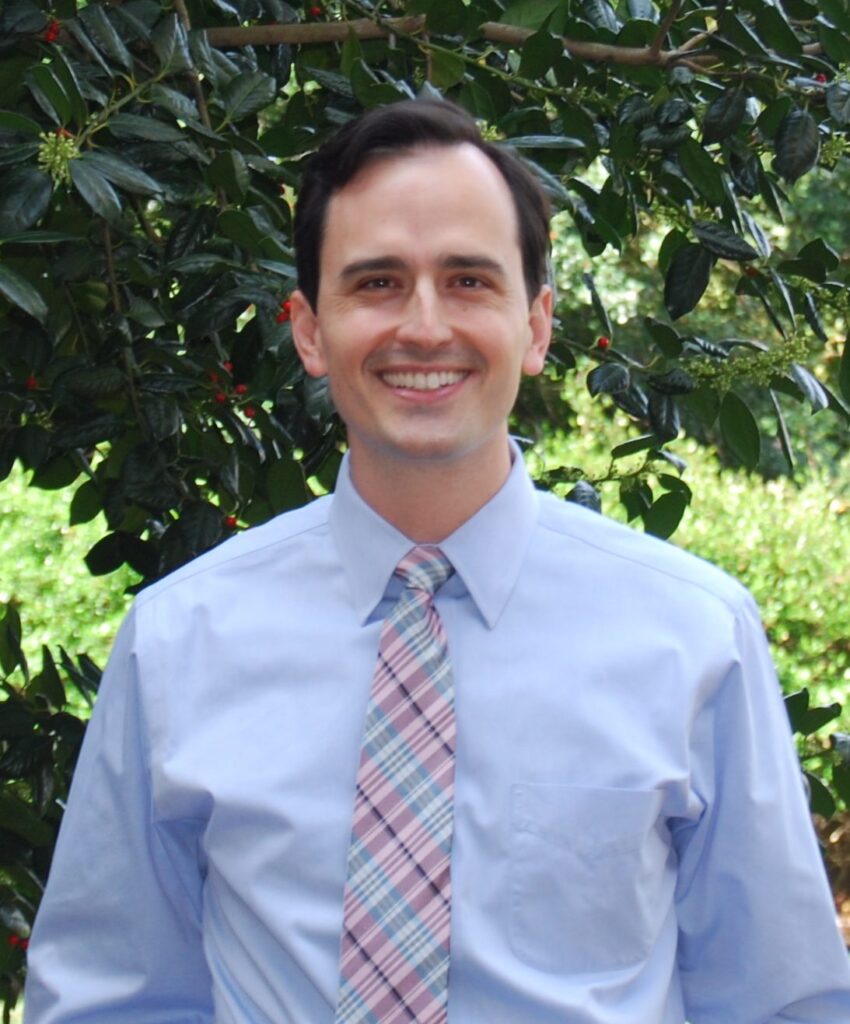The newly funded RERC will bring together an outstanding team, including Dr. Derek Kamper and Dr. Helen Huang (NC State University, Raleigh, NC), Dr. Michael Lewek (University of North Carolina-Chapel Hill, Chapel Hill, NC), Dr. Xiaogang Hu (Penn State University, Centre County, PA), Dr. Jesse Dean (Medical University of South Carolina, Charleston, SC) and Dr. James Patton (Shirley Ryan AbilityLab, Chicago, IL). Additional collaboration partners include Dr. John Baratta and Dr. Blaise Morrison (University of North Carolina-Chapel Hill, Chapel Hill, NC).
Derek Kamper is an Associate Professor and Associate Director of the Closed-Loop Engineering for Advanced Rehabilitation (CLEAR) Core. His research focuses on understanding the motor control of the upper limb, especially the hand, and promoting its rehabilitation following neurological injury, such as experienced by stroke survivors or individuals with cerebral palsy. His interests lie in neuromechanics, identification of impairment mechanism, and the application of mechatronics and virtual reality to rehabilitation.
He (Helen) Huang is the Jackson Family Distinguished Professor in the joint Department of Biomedical Engineering at NC State University and the University of North Carolina at Chapel Hill and the director for the Closed-Loop Engineering for Advanced Rehabilitation (CLEAR) core. She is also the co-director for ASSET RERC. Her research interest lies in neural-machine interfaces, control of prosthetics and exoskeletons, human-robot interaction, and human movement control. She was the recipient of the Delsys Prize for Innovation in Electromyography, the Mary E. Switzer Fellowship with NIDRR (current NIDILRR), NSF CAREER Award, ASA SPES Award, and ALCOA Foundation Distinguished Engineering Research Award. She is a fellow of AIMBE, a fellow of IEEE, and a member of the Society for Neuroscience, AAAS, BMES, and ASB.
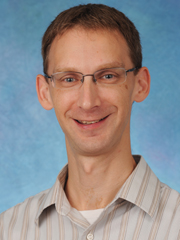
Mike Lewek, PT, PhD is an Associate Professor in the Division of Physical Therapy, Department of Health Science at UNC-Chapel Hill. He is also an associate director of the Closed Loop Engineering for Advanced Rehabilitation core in the joint Department of Biomedical Engineering at UNC-Chapel Hill and NC State University. Using knowledge of biomechanics, energetics, motor learning, and clinical rehabilitation, Dr. Lewek focuses on the recovery and maintenance of safe, efficient walking for people with neurologic injuries (primarily stroke and Parkinson disease).
Xiaogang Hu is the Dorothy Foehr Huck and J. Lloyd Huck Chair in Neurorehabilitation and an associate professor in the Departments of Mechanical Engineering, Kinesiology, and Physical Medicine & Rehabilitation, the Huck Institutes of the Life Sciences, and the Center for Neural Engineering at Penn State University. He received his BE degree in Mechanical Engineering at Tsinghua University. He was trained in motor control and biomechanics at Penn State University during his PhD study, and he completed his postdoc training at the Rehabilitation Institute of Chicago. His research focuses on neural-machine interface and neural stimulation, targeting upper limb sensorimotor functions of individuals after stroke, traumatic brain injury, or limb loss.
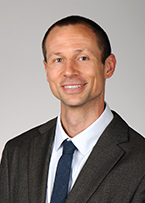
Jesse Dean is an Associate Professor in the Department of Rehabilitation Science at The Medical University of South Carolina. Dr. Dean’s overall research goal is to apply an engineering-based understanding of human movement to improve the functional mobility of individuals with neurological injuries. He primarily focuses on the influence of biomechanics and sensory feedback on the control of human locomotion. His recent work has involved the development of novel rehabilitation approaches to improve walking balance among individuals with chronic stroke.
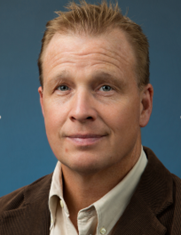
James L. Patton received BS mechanical engineering & engineering science from University of Michigan (1989), MS in theoretical mechanics from Michigan State (1993), and PhD biomedical engineering from Northwestern University (1998). He is Professor of Bioengineering at University of Illinois Chicago, and research scientist at the Shirley Ryan AbilityLab. He worked in automotive manufacturing and nuclear medicine before discovering control of human movement. His interests include robotic teaching, controls, haptics, modeling, human-machine interfaces, and technology-facilitated recovery from a brain injury. Patton is vice president of conferences for the IEEE-EMB society, and Associate Editor of IEEE Transactions on Biomedical Engineering, and Medical Robotics and Bionics.
John M. Baratta, MD, MBA is board-certified physician practicing Physical Medicine and Rehabilitation. He attended medical school at Wake Forest University and completed residency training at the University of North Carolina-Chapel Hill. He is currently an Assistant Professor at the UNC School of Medicine, where he also serves as Medical Director of Stroke Rehabilitation in both inpatient and outpatient rehabilitation settings. In this role, Dr. Baratta cares for stroke survivors on a daily basis. He is enthusiastic about the opportunity to collaborate with other members of ASSET to discover, investigate, and present new options to improve the functionality and independence of stroke survivors.
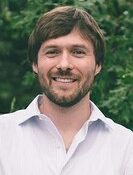
Dr. Blaise Morrison is an Assistant Professor in the Division of Clinical Rehabilitation and Mental Health Counseling in the Department of Health Sciences in the UNC School of Medicine. He also serves as an adjunct assistant professor in the Department of Physical Medicine and Rehabilitation, as well as the Research Coordinator for the UNC Family Support Program. Dr. Morrison teaches graduate courses in mental health and rehabilitation counseling and conducts research on psychosocial and family outcomes after acquired brain injury. He provides psychotherapy to patients with newly acquired disabilities and their family members and facilitates support groups for community members that have experienced a brain injury, stroke, or spinal cord injury. He received his PhD in rehabilitation psychology from University of Wisconsin-Madison and completed clinical training at both West Virginia University Medicine and UNC School of Medicine. He is a licensed psychologist, certified rehabilitation counselor, and licensed mental health counselor. Dr. Morrison’s long-term goal is to develop family-directed interventions that improve psychosocial outcomes in persons with stroke and acquired brain injury.
